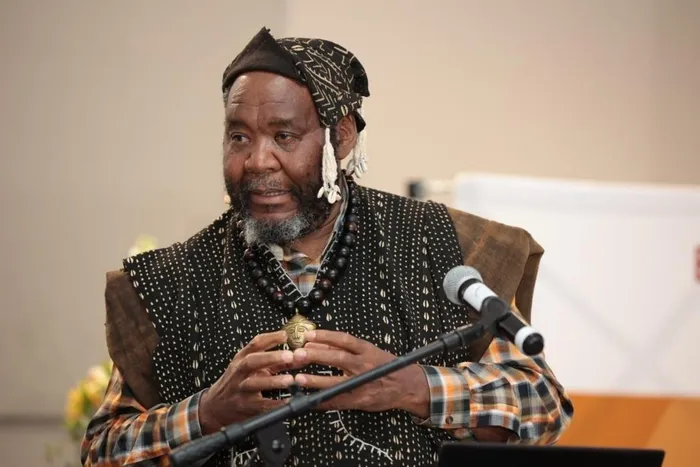
StatsSA is an institution that remains a jewel and a precious gem that sheds light in the nooks and crannies of our society, says Pali Lehohla
Image: AI LABS
To our Johnnies come lately albeit in their old age in the world of public measurement, I thought an orientation is necessary.
I remind them of my statement when StatsSA was granted the rights to host the very first World Data Forum in 2017 which gave rise to the Cape Town Global Action Program (CTGAP). This granted South Africa a sacred responsibility of custodianship as the mother of the World Data Forum.
Smirching statistics for no sound reason and out of ignorance is attracting a thunderbolt that will make the grey listing march like a clown on the Union Building Grounds. It is tempering with keg powder.
In my capacity as the Statistician-General and host of this prestigious conference was nothing short of affirmation of confidence in Statistics South Africa in the world of statistics. This picture and its integrity has not changed seven years on and counting under the Statistician-General Risenga Maluleke.
The World Bank had this to say about the CTGAP, “Since 2017, the Cape Town Global Action Plan for Sustainable Development Data (CTGAP) has provided a framework for planning and implementing the statistical capacity building activities needed to achieve the scope and intent of the 2030 Agenda and to mobilise funding for the modernization of national statistical systems across the world.”
StatsSA is an institution that remains a jewel and a precious gem that sheds light in the nooks and crannies of our society. Yet some ignoramus amongst us had the audacity to cast aspersions on this institution. Perhaps they are horrified by our perpetual inability to get out of a downward spiral and they attribute this to the floodlight that places this deepening deformity under the searchlight.
Certainly, there is nowhere to hide as StatsSA has amply showed. To just go down the memory lane for any doubting Thomas here was my statement when the United Nations Press asked me about what I envisioned as the host institution for the very first World Data Forum in early January 2017.
The first question I addressed was, "What do you expect from the first-ever United Nations World Data Forum? What outcomes would you like to see?"
Statistics is a conduit of trust. It is a currency that holds a global promise for Transparency, Results, Accountability, Sustainability and Transformation (TRAST). It, therefore, creates the possibility and can facilitate global peace, progress and prosperity. It is for this reason that post-World War II, when the paragon of world peace, the United Nations, was established, statistics was central to it.
From the very first-ever United Nations World Data Forum that will be held in Cape Town from 15-January, 18, 2017. I have two messages. First I expect that society in its entirety should understand the value and beauty of statistics, and that without society as collective respondents and purveyors and actors on data, without statistics and measurement, without high-quality statistical evidence, without appropriate indicators to communicate the evidence, without informed issue identification and informed policy action for results and remedy, and without the statisticians themselves, the world does not have an information system for any form of development, let alone sustainable development.
The second message is especially crucial for first and foremost statisticians themselves, so that they realise their historical calling. To be of service to global peace, progress and prosperity, statisticians must transform. The only way statistics can be useful is by engaging actively with the purveyors and politics of policy making and makers, academia, geoscience and locational technology, NGOs, technology, finance, media and citizenry.
The second question I had to address was, "As a statistician, what do you see as the main challenges and opportunities we have for how to use data in the service of sustainable development?"
My answer was that one major challenge is to realise this vision of “you are because I am and we are,” that is the global Ubuntu; each one counts and therefore it counts to be counted. In many poor countries registration of the beginning, living and demise of life is woefully inadequate. Censuses of the population and population models are poor substitutes for a properly functioning civil registration and vital statistics (CRVS) system in countries.
In Africa, from 2010 we initiated a vibrant CRVS movement, although it waned and now it is in dire need of a life-saving jab. It however still remains a pioneering act. Another challenge is to understand that without geographic or spatial attributes, statistical tables count for very little. At an analytical level, geographically weighted regression has demonstrated the instrumentality of spatio-temporal determinants in policy design and implementation.
And this calls for the application of detailed geography for a differentiated approach to influence appropriate policy outcomes. For this to happen, disaggregation of phenomena into its atomic attributes is not only desirable but it is mandatory. In human populations this disaggregation would be by age, sex, disability, employment status, school attendance, education level, income and all this by space across time in order to leave no one behind.
All these challenges require capacity and resources – to improve current methods and to find ways to incorporate new data sources. It is all an opportunity as well – because of the framework created by the Millennium Development Goals, we made a lot of progress on statistics at the national level around the world, and now we will make even more progress, in ways we can’t even imagine.

Dr Pali Lehohla is a Professor of Practice at the University of Johannesburg, among other hats.
Image: Supplied
Dr Pali Lehohla is a Professor of Practice at the University of Johannesburg, a Research Associate at Oxford University, a board member of Institute for Economic Justice at Wits and a distinguished Alumni of the University of Ghana. He is the former Statistician-General of South Africa.
*** The views expressed here do not necessarily represent those of Independent Media or IOL.
BUSINESS REPORT